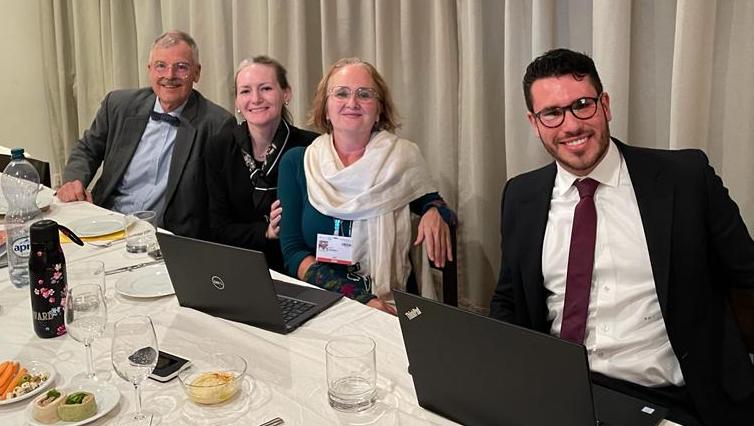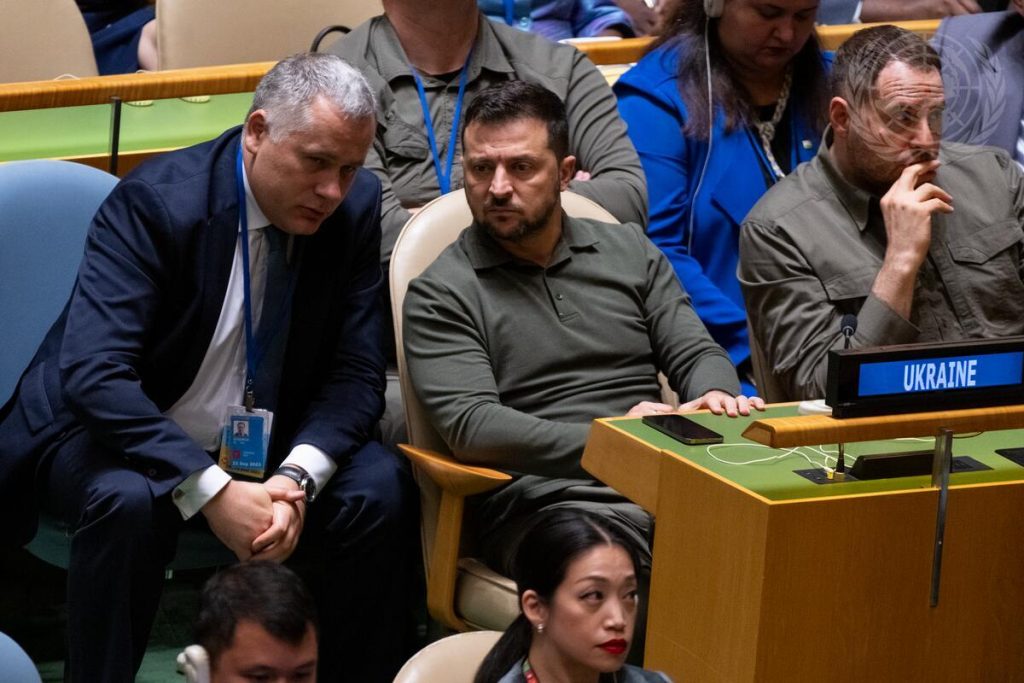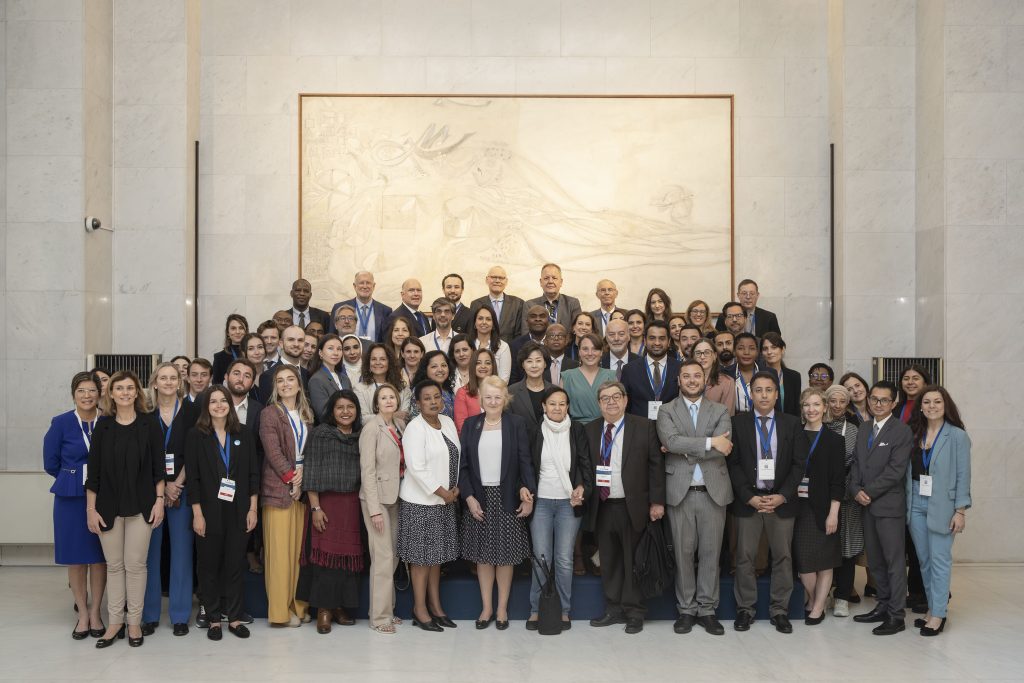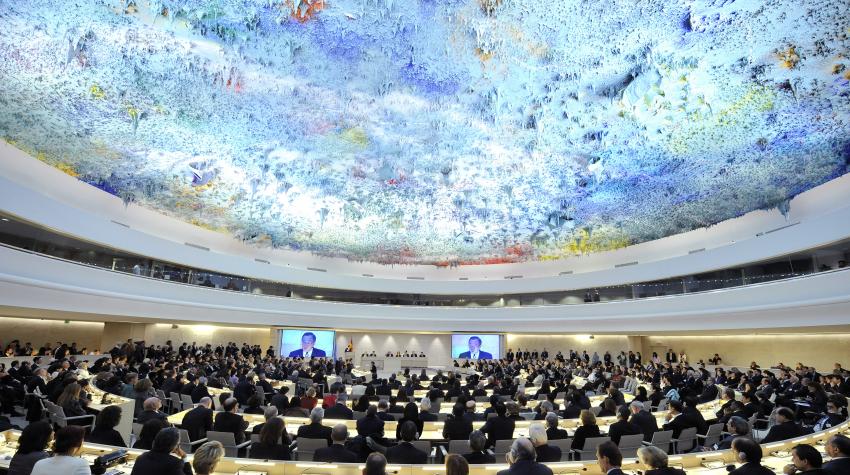Areas of work: Sustainable & Just Economic Systems

Introducing the G20 Peer Reviews
On 25 September 2009, the Leaders of the G20, at their annual Summit (Pittsburgh, Pennsylvania, USA), issued a joint statement...
Read More

Plastic Money: Turning Off the Subsidies Tap (Phase 1)
QUNO’s Sustainable and Just Economic Systems programme, in partnership with Eunomia Research & Consulting Ltd., has published the Phase 1...
Read More

Diplomats, stakeholders gear up for United Nations meeting to end plastic pollution
As part of its quiet diplomacy efforts, the Quaker United Nations Office (QUNO) in Geneva recently hosted 22 diplomats and...
Read More

New Report: Strategies for Asian countries to end plastic pollution
Against the backdrop of Asia’s struggle with burgeoning plastic waste, the Quaker United Nations Office (QUNO) has published a new...
Read More

Insights into Multilateral Cooperation on Prevention of Armed Conflict: An Overview of Member States’ Prevention Priorities: An analysis by Natalie Dewar and Mathilde Dépéry
The 78th session of the United Nations General Assembly (UNGA78) opened with an invitation to the UN Member States to...
Read More

QUNO’s INC-3 Joint Submission with IUCN on Plastic Subsidies
At its second session, the Intergovernmental Negotiating Committee requested the Secretariat to invite written submissions on (a) Elements not discussed...
Read More

SDG 16 Conference 2023: SDG 16 as a compass for navigating intersecting crises
From 30 May to 1 June, Kavita Desai, QUNO NY Representative, actively participated in the fourth annual Sustainable Development Goal 16...
Read More

QUNO’s Contributions to INC-3 Webinar Series on Plastic Pollution
In preparation for the third session of the Intergovernmental Negotiating Committee to Develop an International Legally Binding Instrument on Plastic...
Read More

Students work with QUNO towards just economic systems
Young people have over the years participated in Quaker United Nations Office (QUNO) programmes in various ways. QUNO’s offices in...
Read More
![Image[4]](https://quno-dev.globalsolidarity.foundation/wp-content/uploads/2023/07/Image4-1024x768.jpeg)
Young people gather for QUNO’s Summer School in Geneva
QUNO Geneva’s annual Quaker UN Summer School (QUNSS) hosted 23 participants from various countries recently, connecting them to the United...
Read More

QUNO’s Role at the Paris INC: Shaping Global Solutions to End Plastic Pollution
Ending plastic pollution globally remains a top priority for the Sustainable and Just Economic Systems (SJES) programme at the Quaker...
Read More

QUNO’s Contribution to Zero Draft for MC13 Outcome – Dialogue on Plastic Pollution
The SJES team was approached by the DPP (Dialogue on Plastic Pollution) Secretariat for feedback on their Zero Draft in...
Read More

Fair Sources of Finance for a New Loss and Damage Funding Arrangement
Last November, States that took part in COP27 in Sharm El-Sheikh agreed to pass a new funding arrangement for responding...
Read More

Upcoming Event: Webinar and Quiet Diplomacy Dinner on Trade-Related Measures for a Treaty to End Plastic Pollution
We would like to inform you of an upcoming event on the 26th of April 2023, co-hosted by the Quaker...
Read More

52nd Session of the Human Rights Council – Interactive Dialogue with the Special Rapporteur on Human Rights and the Environment
On the 9th and 10th of March, an Interactive Dialogue with the Special Rapporteur on Human Rights and the Environment was...
Read More

Countries adopt landmark treaty to protect the world’s oceans
Late in the evening on 4 March 2023, the United Nations adopted a historic treaty to protect the world’s oceans....
Read More
